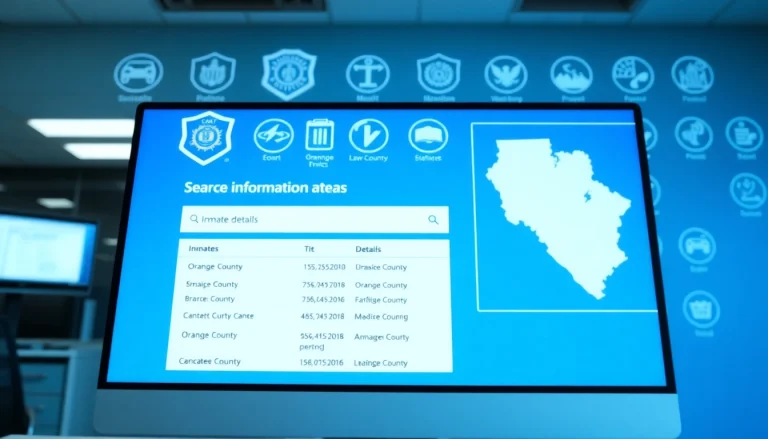
Understanding GCMS Notes
What Are GCMS Notes?
GCMS Notes, or Global Case Management System Notes, are comprehensive documents created by Immigration, Refugees and Citizenship Canada (IRCC) that record all relevant details and correspondence related to an individual’s immigration file. These notes encapsulate a variety of essential information, including the applicant’s profile, decisions taken, and communications between immigration officials and the applicant. Each entry serves as a vital piece of the overarching narrative of one’s immigration journey, allowing for better transparency and understanding of cases.
Importance of GCMS in Immigration Cases
GCMS Notes play a pivotal role in the immigration process by providing applicants with insights into the status of their applications. They allow individuals to uncover the reasons behind delays or decisions, thereby enabling them to address any concerns that immigration officials might have. Understanding these notes can significantly affect the outcome of an application, especially if there are indications of issues that may warrant further clarification or documentation. Furthermore, they are instrumental in preparing rebuttals against refusals or appeals by presenting a clearer picture of what has transpired within the immigration process.
Who Can Request GCMS Notes?
Typically, any individual with an ongoing or past immigration application to IRCC has the right to request their GCMS Notes. This includes applicants for permanent residency, work permits, study permits, and refugee status. Moreover, legal representatives or authorized third parties, such as immigration consultants, can request these notes on behalf of the individual, provided they have the necessary consent. This empowers applicants to receive tailored advice based on the specific details recorded in their GCMS Notes.
How to Get GCMS Notes
Step-by-Step Process for Requests
The process of obtaining GCMS Notes is systematic and can be broken down into several clear steps:
- Determine Eligibility: Ensure that you or your representative holds the necessary legal standing to request the notes.
- Complete the Application Form: Fill out the Access to Information Request form (IMM 5563), which requires personal details such as your name, date of birth, and specifics of your immigration file.
- Provide Identification: A copy of valid identification must accompany the request. This could be a passport or a driver’s license.
- Calculate Fees: Most requests require a processing fee, typically around CAD 5, which can be paid online.
- Submit the Request: Send the completed form, identification, and fee receipt to the appropriate address as indicated in the guidelines.
Required Documentation and Fees
As mentioned, the main documents needed when requesting your GCMS Notes include:
- Completed access request form (IMM 5563).
- Proof of identification (e.g., passport, driver’s license).
- Payment receipt for the processing fee.
It’s crucial to ensure all documents are current and legible, as any discrepancies can lead to delays. If a third party is making the request on your behalf, a consent form must also be included with the application.
Submitting Your Request
After preparing your request, submission can be made via mail or through an online portal, depending on the IRCC’s latest procedures. Confirm that all required documentation is included to avoid complications. Check the official get gcms website for updates on submission methods and processing times.
Common Challenges in Obtaining GCMS Notes
Delays and Processing Times
Obtaining GCMS Notes can sometimes encounter delays due to high volumes of requests or processing inefficiencies within IRCC. It’s not uncommon for requests to take several weeks to months, depending on the complexity of the case and the current workload of the department. Understanding these timelines can help set realistic expectations for applicants.
Understanding Denials and Rejections
While most requests for GCMS Notes are typically fulfilled, there could be circumstances leading to denials or rejections. These usually revolve around issues such as incomplete applications or not providing the necessary identification. If you face a rejection, it’s essential to review the feedback carefully, make corrections, and resubmit without unnecessary delays.
How to Handle Incomplete Requests
In the case of receiving incomplete GCMS Notes, it’s critical to analyze what was missing. Reach out to IRCC for clarification and request the outstanding information. Always keep a record of communication with the IRCC, as this can be beneficial in future interactions. Consider consulting with a professional in immigration law or an experienced consultant for guidance if challenges persist.
Maximizing the Benefits of GCMS Notes
Analyzing Your GCMS Notes Effectively
Upon receiving your GCMS Notes, the next step is to analyze them thoroughly. Look for patterns in the decision-making process, pay attention to any red flags that may need addressing, and consult with professionals if the details are overwhelming. Understanding your notes deeply can help you pinpoint areas for improvement or clarification and strengthen your case for any future applications.
Using Data to Strengthen Your Immigration Case
GCMS Notes contain invaluable data that can offer insights beneficial for your immigration journey. For instance, if there are areas where your application was deemed deficient or inconsistent, you can gather supplementary supporting documents to address these issues. Using your GCMS Notes strategically allows you to craft a stronger narrative that aligns with IRCC requirements, thus improving the odds of success for your immigration case.
Consulting with Professionals for Best Practices
If navigating GCMS Notes proves challenging, consider seeking assistance from immigration consultants or attorneys. These professionals can help interpret the information, identify any concerns, and suggest specific actions to remediate them effectively. They can also provide insights into best practices for communication with IRCC, ensuring that your follow-up requests or appeals are as robust as possible.
Success Stories: Real-life Examples
Case Studies of Successful Applications
Many individuals have successfully navigated the immigration process with the help of GCMS Notes by implementing strategic insights gleaned from their files. For example, one applicant identified inconsistencies in the documentation provided during their initial application through their GCMS Notes. By addressing these red flags with additional evidence, they were able to overturn a previous refusal and secure their residency.
Lessons Learned from GCMS Requests
Various lessons emerge from studying successful GCMS requests. First, being proactive in understanding and addressing potential weaknesses in your application highlighted in GCMS Notes can change the trajectory of your case. Second, utilizing the notes to develop a clear communication strategy when liaising with IRCC can bolster your chances for a favorable outcome.
Inspiring Testimonials from Applicants
Many applicants share stories of how GCMS Notes changed their immigration fortunes. Testimonials highlight the importance of these documents in shedding light on previously unclear aspects of the application processes and facilitating a more informed approach to resubmissions or appeals. Such narratives reveal not just the potential pitfalls but also the achievable milestones in the journey through Canadian immigration.






